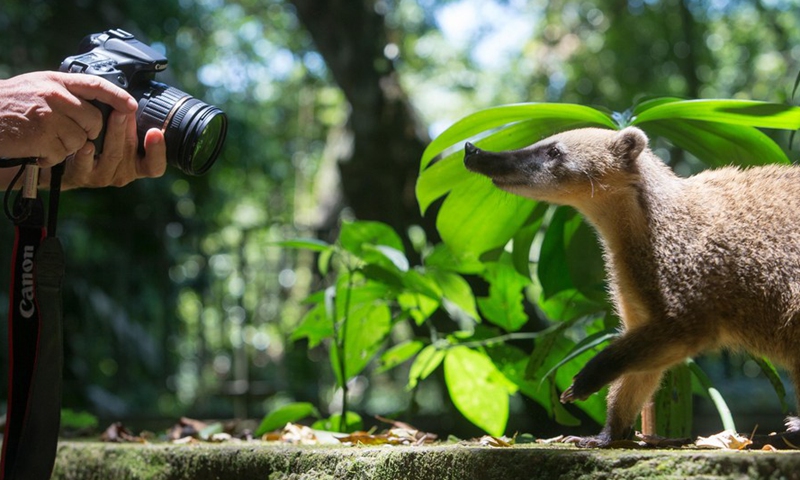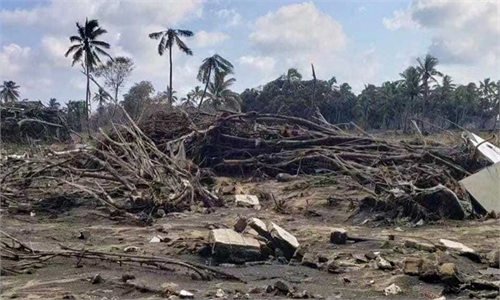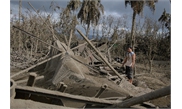
A tourist take video footage of a coati in the rainforest in Tijuca National Park in Rio de Janeiro, Brazil, Jan. 11, 2014. (Photo: Xinhua)
The lush mid-Atlantic volcanic island of Sao Jorge has been rattled by more than 14,000 small earthquakes in the past seven days. Fatima Viveiros and other experts fear the tremors, which have reached a magnitude of up to 3.3 on the Richter scale, could trigger a volcanic eruption for the first time since 1808, or a powerful earthquake.
"My home is located on an active volcanic system," said Fatima Viveiros, who works for the region's CIVISA seismo-volcanic surveillance center.
Viveiros was a little girl when she decided to become a volcanologist. It was a dream come true and now, at age 44, she is putting her skills to protect her home in Portugal's Azores islands.
"When [something happens] in our home we must be a little cold-blooded, so our feelings don't affect our thinking," she added. "But the feelings are there because it's my home, my people."
Soil gases, such as carbon dioxide and sulphur, are indicators of volcanic activity, and Viveiros and her team have been battling Sao Jorge's rain and strong winds for days to dig for answers. So far, the levels remain normal.
The island's sudden increase in seismic activity is reminiscent of the earthquakes detected before the eruption of the Cumbre Vieja volcano on Spain's La Palma island in 2021, some 1,400 kilometers southeast of the Azores.
Over 85 days, that eruption destroyed thousands of properties and crops.
Jose Bolieiro, president of the Azores, which is an autonomous region of Portugal, said the number of earthquakes that hit Sao Jorge in recent days was double those recorded in the region as a whole in 2021.
Reuters



